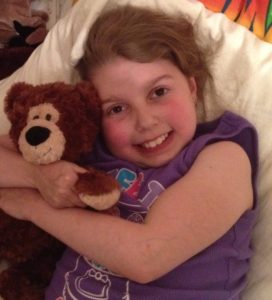Recounting Marisa Tufaro’s courageous journey with post-transplant lymphoproliferative disorder (PTLD) may impact treatment of the rare form of cancer that claimed her life.
Cyndi and Greg Tufaro shared the story of their daughter’s valiant battle with PTLD during a historic patient-focused drug development meeting with U.S Food and Drug Administration (FDA) leaders last year.
The National Organization for Rare Disorders (NORD) hosted the first-of-its-kind meeting for the patient community, researchers, medical product developers and health care providers. The meeting gave a powerful voice to inspirational PTLD survivors, as well as grieving caregivers who lost a loved one to the disease.
“Cyndi and I are eternally grateful for the time God blessed us with Marisa, but we struggle daily to live with the tragic irony that the transplant performed to save her life inevitably claimed it, along with the heart of a donor whose family is also grieving,” Greg Tufaro was quoted saying in a press release NORD issued after the meeting.
“Marisa spent 161 of the last 214 days of her life as a patient at a nationally renowned children’s hospital, where dozens of doctors and nurses, profoundly impacted by her remarkable courage and will to survive, were reduced to tears upon her untimely passing.”
Patients who live with a disease and their caregivers have a direct stake in drug development and in the outcome of the FDA review process for new drugs, according to the administration. Patients and their caregivers are also in a unique position to contribute to an understanding of benefit and risk considerations throughout the medical product development process.
A rare but well-known complication of solid organ transplant and hematopoietic stem cell transplantation, PTLD is classified as a lymphoma, a group of related cancers that affect the lymphatic system. PTLD is characterized by the overproduction and spread of too many white blood cells (lymphocytes).
Born with a complex cardiac defect that required six open-heart surgeries, Marisa developed two life-threatening conditions that necessitated a heart transplant. Performed to save her life, the transplant inevitably claimed it when Marisa contracted PTLD four months after receiving a new heart.
According to the Leukemia & Lymphoma Society, the FDA has yet to approve any therapies to treat PTLD.
Be The Match, a nonprofit under the auspices of the National Marrow Donor Program dedicated to helping patients receive life-saving transplants, notes standard treatments for PTLD typically include:
- A reduction of immunosuppression to see if the patient’s own immune system can fight the PTLD.
- The administration of Rituximab (Rituxan) to target the patient’s B cells.
- The use of aggressive chemotherapy.
- The use of other treatments in development that are available through clinical trials.
 Marisa was eligible for a clinical trial to receive potentially life-saving immunotherapy because the treatment protocol for patients with PTLD – including Rituxan and chemotherapy – failed to thwart the relentless onslaught of the disease that riddled her brain and body.
Marisa was eligible for a clinical trial to receive potentially life-saving immunotherapy because the treatment protocol for patients with PTLD – including Rituxan and chemotherapy – failed to thwart the relentless onslaught of the disease that riddled her brain and body.
She died on the same day (Jan. 30, 2017) the screening period to receive the immunotherapy ended and after repeated last-ditch attempts at whole-brain radiation therapy failed. Marisa was just 13 years old.
Marisa’s case of PTLD, according to the medical director of heart failure, cardiomyopathy and cardiac transplantation at one of the nation’s leading children’s hospitals, was “a very grave form” that “occurred very early after transplant and was very widespread.”
“I would qualify that as a rare occurrence,” the doctor said of Marisa’s PTLD. “Quite honestly, it’s rare enough that in my own limited practice (with PTLD) I would say I haven’t seen proliferation into the brain. I can imagine that it would be very much so a more difficult scenario to treat.”
Despite the apparent insurmountable odds, Cyndi and Greg would like to believe that had Marisa been able to receive and respond to immunotherapy before the PTLD spread to her brain, she would have had a better chance of survival.
Inspirational transplant recipients and grieving caregivers took part in NORD’s meeting. Marisa’s parents had the honor and privilege of joining several of them at a first-of-its-kind PTLD patient and caregiver advisory board meeting in Houston three years earlier.
Through her parents’ participation in the meeting, Marisa was afforded an opportunity to positively impact the lives of others, just as she does through the nonprofit bearing her name.
Since its inception six years ago, The Marisa Tufaro Foundation has already made a profound impact, donating a more than $300,000 to assist pediatric patients and other children in need throughout the greater Middlesex County area.
The nonprofit has donated thousands of toys, nonperishable food items, winter jackets, baby supplies and other items upon which it has placed no monetary value. In addition, The Marisa Tufaro Foundation has awarded $26,500 in academic scholarships to 42 high school graduates.
The foundation also provides a PTLD resource page on its website.

